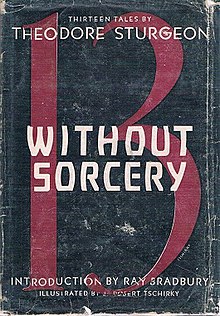Extollager
Well-Known Member
- Joined
- Aug 21, 2010
- Messages
- 9,270
Knight's Beyond Tomorrow was one of the first sf anthologies I spent much time with.

Contents Lists gives the contents. Notice how many of the titles are at least somewhat likely to interest a young inquirer such as I was.
Contents Lists gives the contents. Notice how many of the titles are at least somewhat likely to interest a young inquirer such as I was.
- Beyond Tomorrow ed. Damon Knight (Harper & Row, 1965, $4.50, 333pp, hc)
- Introduction · Damon Knight · in
- Brightside Crossing · Alan E. Nourse · nv Galaxy Jan 1956
- The Deep Range · Arthur C. Clarke · ss Star Science Fiction Stories #3, ed. Frederik Pohl, Ballantine 1954
- Coventry · Robert A. Heinlein · na Astounding Jul 1940
- The Mile-Long Spaceship · Kate Wilhelm · ss Astounding Apr 1957
- The Seesaw [Isher] · A. E. van Vogt · ss Astounding Jul 1941
- Nightfall · Isaac Asimov · nv Astounding Sep 1941
- The Million-Year Picnic · Ray Bradbury · ss Planet Stories Sum 1946
- Desertion [City (Websters)] · Clifford D. Simak · ss Astounding Nov 1944
- Twilight [Dying Earth] · Don A. Stuart · nv Astounding Nov 1934
- Happy Ending · Henry Kuttner · nv Thrilling Wonder Stories Aug 1948
- More Good Reading in Science Fiction · [Misc.] · bi





